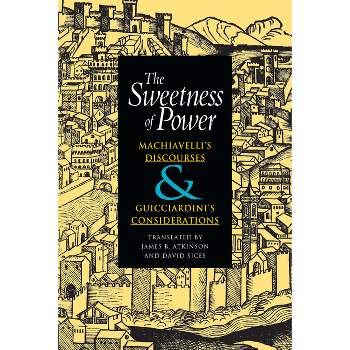Sponsored
Work Flows - (Niu Slavic, East European, and Eurasian Studies) by Maya Vinokour (Hardcover)

About this item
Highlights
- Work Flows investigates the emergence of "flow" as a crucial metaphor within Russian labor culture since 1870.
- About the Author: Maya Vinokour is Assistant Professor in the Department of Russian and Slavic Studies at New York University.
- 324 Pages
- Political Science, Labor & Industrial Relations
- Series Name: Niu Slavic, East European, and Eurasian Studies
Description
About the Book
"This book traces the history and legacy of flow as a crucial figure within Russian labor discourse since 1870. The book frames concern with fluid channeling as immanent to labor culture in vertical power structures-whether that verticality derives from the state, as in Stalin's Soviet Union and present-day Russia, or from the proliferation of corporate monopolies, as in the contemporary Anglo- American West."--Book Synopsis
Work Flows investigates the emergence of "flow" as a crucial metaphor within Russian labor culture since 1870. Maya Vinokour frames concern with fluid channeling as immanent to vertical power structures--whether that verticality derives from the state, as in Stalin's Soviet Union and present-day Russia, or from the proliferation of corporate monopolies, as in the contemporary Anglo-American West. Originating in pre-revolutionary bio-utopianism, the Russian rhetoric of liquids and flow reached an apotheosis during Stalin's First Five-Year Plan and re-emerged in post-Soviet "managed democracy" and Western neoliberalism.
The literary, philosophical, and official texts that Work Flows examines give voice to the Stalinist ambition of reforging not merely individual bodies, but space and time themselves. By mobilizing the understudied thematic of fluidity, Vinokour offers insight into the nexus of philosophy, literature, and science that underpinned Stalinism and remains influential today. Work Flows demonstrates that Stalinism is not a historical phenomenon restricted to the period 1922-1953, but a symptom of modernity as it emerged in the twentieth century. Stalinism's legacy extends far beyond the bounds of the former Soviet Union, emerging in seemingly disparate settings like post-Soviet Russia and Silicon Valley.
About the Author
Maya Vinokour is Assistant Professor in the Department of Russian and Slavic Studies at New York University. Her interests include Stalinism and Nazism, late-Soviet science fiction, post-Soviet media, and the global New.











